The Well-Tempered Ear
‘Lord of the Rings’ to become an opera
Leave a Comment
PLEASE HELP THE EAR. IF YOU LIKE A CERTAIN BLOG POST, SPREAD THE WORD. FORWARD A LINK TO IT OR, SHARE IT or TAG IT (not just “Like” it) ON FACEBOOK. Performers can use the extra exposure to draw potential audience members to an event. And you might even attract new readers and subscribers to the blog.
By Jacob Stockinger
Here is something a lot of old — and especially new — opera fans should like.
The globally popular “The Lord of the Rings” — a popular set of epic fantasy books that was turned into a blockbuster movie (below) by Peter Jackson — will become a full-blown opera. Or perhaps, like Wagner’s more famous “Ring of the Nibelung” cycle, several operas.
Just this week, the J.R.R. Tolkien Estate granted permission to the British composer Paul Cofield Godfrey (below) to compose a complete opera based on the best-selling work if fantasy.
https://www.classicfm.com/music-news/lord-of-the-rings-opera-approved-tolkien-estate
Godfrey (below) has already composed some possible excerpts that will likely be used in the opera — and might have helped to persuade the Tolkien Estate to grant him permission. You can hear one — a burial dirge or “Lament for Boromir” — in the YouTube video at the bottom.
Translated into more than 38 languages with sales of more than 150 million copies, the fantasy — which met with mixed critical reaction when it was first published — has been nothing short of a phenomenon. One can justifiably expect guaranteed success of the operatic version.
For more about the history and the plot of “The Lord of the Rings’ see the Wikipedia entry:
https://en.wikipedia.org/wiki/The_Lord_of_the_Rings
Does an opera based on “The Lord of the Rings” interest you?
Do you think it will be successful?
The Ear wants to hear.
Tags: academic, alto, Android, Apple, Arts, Asia, asian, audience, baritone, bass, best-sellebest, best-selling, blockbuster, blog, Book, Boromir, British, British composer, Choir, choral music, Classic FM, Classical music, composer, Concert, copies, copy, critic, dirge, drama, duckduckgo, Earth, England, epiuc, estate, Facebook, famous, fan, fantasy, film, global, globe, Google Alert, Google Alerts, Google Search, grant, Great Britain, guarantee, History, J.R.R.Tolkien, Jacob Stockinger, lament, language, languages, like, link, Lord of the Rings, Madison, mezzosoprano, Microsoft, Microsoft Bing, million, movie, Music, musical drama, new, New Zealand, old, opera, opera-based, Orchestra, OS, Paul Cofield Godfrey, permission, Peter Jackson, Peter Jacobs, phenomenon, plot, popular, publish, published, reviews, Ring cycle, Ring of the Nibelung, sales, scholastic, sell, share, sing, singer, Singing, sold, soprano, success, successul, symphony, tag, Television, tenor, The Ear, The Lord of the Rings, The Tolkien Estate, The Well-Tempered Ear, theater, theatre, translate, TV, UK, United States, universal, vocal music, Wagner, Well-Tempered, Wisconsin, world, worldwide, YouTube
Classical music: Madison Opera’s “Seraglio” stood out for its singing and staging, its local sets and costumes, and provided a crowd-pleasing comic romp in trying times. Plus, Friday brings FREE piano and viola da gamba concerts
3 Comments
FRDAY ALERTS: This Friday’s FREE Noon Musicale at the First Unitarian Society of Madison, 900 University Bay Drive, features Eric Miller playing the viola da gamba in a recital of early baroque music by Marais, Forquery, Sainte-Colombe, Abel, Hume and Ortiz. The concert runs from 12:15 to 1 p.m.
Then on Friday night at 8 p.m. in Mills Hall, the critically acclaimed guest pianist Marina Lomazov will perform a FREE recital of all-Russian music that includes “Pictures at an Exhibition” by Modest Mussorgsky. Lomazov’s recital is part of a larger event, “Keyboard Day,” that has a French focus and takes place all day Saturday at the UW-Madison’s Mead Witter School of Music. See tomorrow’s post for more information about Saturday. For more about Lomazov, go to: https://www.music.wisc.edu/event/guest-artist-marina-lomazov-piano/
By Jacob Stockinger
The Opera Guy filed this review of last weekend’s production by the Madison Opera:
By Larry Wells
On Sunday afternoon, I attended the second and final performance of Madison Opera’s production of Mozart’s “The Abduction from the Seraglio” in the Capitol Theater of the Overture Center.
This comic romp utilized a beautiful set and wonderful costumes designed and constructed in-house. (Below, Matt Bueller as Osmin peers out the door of the palace, or seraglio, at David Walton as Belmont.)
The orchestra, drawn from the Madison Symphony Orchestra and ably led by maestro John DeMain, was situated backstage. This was an effective novelty, although the sound was somewhat muffled, at least from where I sat in mid-orchestra.
The dialogue was in English while the singing was in German with English supertitles. I looked over the lengthy original libretto and was thankful that it had been heavily abridged for this two-hour production.
It had also been updated to be both hip and politically correct about Islamic culture and Turkey, where the story takes place. But it made me idly wonder what the reaction would be if the music had been likewise updated to be more in tune with the times.
The production was all about the singing.
David Walton’s Belmonte (below right, with Amanda Woodbury as Konstanze) was beautifully sung, particularly in the second act. He has a Benjamin Britten tenor voice with remarkable breath control.
Eric Neuville’s Pedrillo was also admirably sung. Neuville is an accomplished comic actor, as well.
Ashly Neumann’s singing as Blonde (below center, with women of the Madison Opera Chorus) was clean, clear and bell-like.
Amanda Woodbury as Konstanze (below right with Brian Belz as Pasha Selim) was virtuosic. She displayed vocal fireworks several times and was especially effective in her lament toward the end of the first act.
This quartet’s ensemble work in the second act was a vocal high point. (You can hear the quartet from a different production in the YouTube video at the bottom.)
But to me the most impressive singing and comic acting belonged to Matt Boehler as Osmin. His bass was simply majestic. (Below, from left, are Brian Belz as Pasha Selim; David Walton as Belmonte; Matt Boehler as Osmin; Eric Neuville as Pedrillo; Ashly Neumann as Blonde; and Amanda Woodbury as Konstanze.)
The well-prepared chorus appeared briefly in each act, adding some color and motion to the production.
Musically and visually the production was a success. The audience responded with 19 ovations during the performance – yes, I counted. Every time the orchestra reached a cadence and paused, the audience members applauded as if they were at a musical. With the incessant coughing throughout the performance, I felt like I was at a performance of “South Pacific” in a tuberculosis ward.
The audience leapt to its feet at the end, and this made me wonder what it was that they found so praiseworthy. The story itself is inconsequential and has little relevance to life today.
The singing was very good, but this is not La Scala.
The music itself, with the exception of a couple of sublime moments, does little more than foreshadow the mature Mozart of “The Magic Flute.”
I concluded that the opera is unalarming, unthreatening, and simple. This is perhaps what people long for in these trying times.
I do look forward to the Madison Opera’s production of Daniel Catan’s “Florencia en el Amazonas” this spring. Based on repeated hearings of the recording, I guarantee that Madison will be in for a treat. And there is nothing threatening or alarming or complex about the music, despite it being a work of the late 20th century.
Tags: #BenjaminBritten, #LaScala, #MadisonOpera, #MadisonSymphonyOrchestra, #MeadWitterSchoolofMusic, #PoliticallyCorrect, #TheMagicFlute, #UnitarianSociety, #UniversityofWisconsin-Madison, #WolfgangAmadeusMozart, 20th-century, Abduction From the Seraglio, Abel, abridged, act, Actor, alarming, applauded, applause, Arts, audience, backstage, Baroque, bass, beautiful, Bell, Benjamin Britten, breath, Britten, cadence, Capitol Theater, Cello, Chamber music, chorus, Classical music, clean, clear, comedy, comic, complex, composer, Concert, construction, control, costume, cough, coughing, Daniel Catan, design, dialogue, door, Early music, English, ensemble, Fireworks, First Unitarian Society of Madison, Florencia en el Amazonas, foreshadow, Forquery, France, free, French, Friday, German, hearing, high point, hip, Hume, impressive, inconsequential, Islam, Islamic, John DeMain, Keyboard, lament, libretto, life, Madison, Madison Opera, Madison Opera Chorus, Madison Symphony Orchestra, Magic Flute, majestic, Marin Marais, Marina Lomazov, mature, Modest Mussorgsky, moment, Mozart, Music, musical, musically, novelty, opera, Ortiz, ovation, Overture Center, palace, pause, People, performance, Pictures at an Exhibition, politically correct, production, reaction, recording, relevance, relevant, review, romp, Russia, Russian, Sainte-Colombe, Saturday, set, simple, singer, Singing, Sound, South Pacific, Spring, story, sublime, success, supertitles, tenor, The Magic Flute, threaten, threatening, time, times, today, treat, trying times, tubercular, tuberculosis, Turkey, unalarming, University of Wisconsin-Madison School of Music, University of Wisconsin–Madison, update, viola da gamba, virtuosic, visually, vocal music, voice, ward, Wisconsin, Wolfgang Amadeus Mozart, women, YouTube
Classical music: Voces Aestatis — Summer Voices — will perform early and Baroque vocal music this Friday night
Leave a Comment
By Jacob Stockinger
The Ear has received the following information to post from Ben Luedcke, the artistic director of the choral group Voces Aestatis (Summer Voices, below).
Luedcke writes:
Voces Aestatis (Summer Voices) will present its third annual summer concert this Friday night, Aug. 25, at 7:30 p.m. at Saint Andrew’s Episcopal Church (below top and below bottom), 1833 Regent Street in Madison.
Tickets are $20 and available at the door. (Cash and check only; sorry, no credit or debit card sales.)
Artistic Director Ben Luedcke (below) and Assistant Director Ena Foshay have carefully selected singers with a pure blend to perform in this intimate concert venue.
Voces Aestatis is Madison’s only professional choir that specializes in early music.
The group will maintain its tradition of favoring a cappella repertoire of the 16th century, but new this year will be a collaboration with Saint Andrew Episcopal’s music director, Ken Stancer (below).
Stancer will accompany the choir on organ in four 17th-century pieces, including works by Heinrich Schütz, Giovanni Gabrieli, Henry Purcell and Marc-Antione Charpentier.
While the Purcell is the familiar, powerful and climactic “Hear My Prayer,” Gabrieli’s “O Jesu mi dulcissime” and Charpentier’s “Te Deum,” H.147, are rarely performed and are not to be missed.
The Gabrieli setting is for double-choir. But rather than two equal choirs, there are separate low-voice and high-voice choirs that provide a unique and sonorous texture of men and women. Additionally, the Charpentier is full of variety, including solos and quartets within the larger 10-minute piece.
Other a cappella works round out the program, including music by Tomás Luis de Victoria and William Byrd (below).
Most noteworthy will be the group’s fresh look at the double-choir motet “Super flumina babylonis,” by Phillipe de Monte (below). Although the work is typically performed rather slowly and lamentingly, the group will bring a decisively different interpretation with a quicker tempo and active articulations. (You can hear a traditional performance in the YouTube video at the bottom.)
Also of note on the first half are pieces by Giovanni Pierluigi da Palestrina (below top) and Orlando di Lasso (below bottom), with texts from the “Song of Solomon” — a collection of bible passages that allege to describe the love between Christ and the Church, though they are in fact favorites of choral composers as they are known for their rather erotic descriptive passages.
Finally, Jacob Obrecht’s “Salve Regina” for six voices is likely to stun listeners not only for its beauty, but also because it was written almost 100 years earlier than anything else on the program.
It features a noticeably different and almost austere harmonic palette with overlapping thick textures, as well as many complicated rhythms and chants in between major sections.
Please visit VocesAestatis.org for more information or to support the organization. The group relies on individual donations, so we thank you in advance for supporting the arts in Madison.
Tags: "Song of Solomon", a cappella, articulation, Artistic director, Arts, assistant, Baroque, Ben Luedcke, Bible, blend, Byrd, chant, Charpentier, Choir, choral, choral music, chorus, Christ, church, Classical music, collaboration, collection, composer, Concert, description, descriptive, donation, Early music, Ena Foshay, Episcopal, erotic, familiar, Friday, Gabrieli, harmony, Heinrich Schütz, interpretation, intimate, Jacob Obrecht, Jacob Stockinger, Jesu, Ken Stancer, lament, Lasso, Love, Madison, men, motet, Music, Music director, night, organ, organization, Orlando di Lasso, Palestrina, passage, performance, Philippe de Monte, powerful, prayer, professional, Purcell, Quartet, repertoire, rhythm, singer, solo, Solomon, song, sonorous, St. Andrew, summer, support, Te Deum, Tempo, text, texture, Tomas Luis de Victoria, tradition, United States, University of Wisconsin-Madison School of Music, University of Wisconsin–Madison, variety, venue, vocal music, Voces Aestatis, voice, voices, Wisconsin, women, YouTube
Classical music: Madison Bach Musicians announces its 14th season with music by Vivaldi, Bach and Purcell
2 Comments
By Jacob Stockinger
The Ear has received the following announcement from founder, artistic director and keyboardist Trevor Stephenson about the upcoming season of the Madison Bach Musicians (below):
“This season we are thrilled to present three wonderfully diverse programs of baroque masterworks.
“We’ll start in September with Imitation, exploring the Baroque fugal art of Antonio Vivaldi (below top) and Johann Sebastian Bach (below bottom) — with guest cellist Steuart Pincombe.
“December marks MBM’s seventh annual Baroque Holiday Concert (below, in a photo by Kent Sweitzer). This year we’ll feature Johann Sebastian Bach’s elegant Cantata 32 plus Vivaldi’s dramatic Winter from the Four Seasons.
“To cap it all off in April, we’ll test the limits of comic-tragic juxtaposition with a double-billing: Bach’s highly-caffeinated Coffee Cantata paired with the heart-rending operatic masterpiece Dido and Aeneas by Henry Purcell (below).
“Please join us as we explore this wonderful repertoire on period instruments in acoustically magnificent settings reminiscent of Baroque performance spaces.
“We invite you to become a Madison Bach Musicians season subscriber. As a subscriber, you will receive the largest savings on ticket prices, preferred seating, and easy online ordering. And this year we’re offering some exciting new subscription options, including a 2-concert package ($62, $55 for seniors 65 and over, $32 for students with ID) or 3-concert package ($90, $80 for seniors 65 plus, $45 for students with ID), and a very economical student subscription rate.
“Ticket sales make up our most reliable and vital funding source. Your support through season subscriptions gives us the financial security to produce these creative and artistically ambitious programs. I hope you will consider subscribing to this series of outstanding musical events.
“Thanks for supporting baroque music in Madison.
See you at the concerts!
Trevor Stephenson, Artist Director (below)”
September 23 and 24
Bach and Vivaldi: Imitation; with soloist Steuart Pincombe, baroque cello
Saturday, September 23, 2017; 6:45 p.m. lecture, 7:30 p.m. concert;
First Unitarian Society of Madison–Atrium Auditorium
Sunday, September 24, 2017; 2:45 p.m. lecture, 3:30 p.m. concert; Holy Wisdom Monastery in Middleton
Join us in this exploration of fugues and imitation from Bach and Vivaldi–two masters of the Baroque! Fugues are created when a musical line is introduced by one voice and then repeated with slight variations by any number of other voices. It’s always an amazing experience for audiences to hear and see how the different voices interact. Vivaldi has simplicity and Bach the complexity, but both play the fugue game with equal vigor.
Madison Bach Musicians is thrilled to have cellist Steuart Pincombe (below) returning for this season’s opening concert. Steuart can be heard in concert venues across Europe and quite possibly around the corner in your local brewery or cafe. Wherever he performs, Steuart aims to engage with his audience through creative presentations of the classical repertoire. Don’t miss this spectacular season opener.
December 9
Baroque Holiday Concert; Saturday, December 9, 2017; 7:15 p.m. lecture, 8 p.m. concert; First Congregational United Church of Christ
Our seventh annual Baroque Holiday Concert will once again be held in the beautiful and sonorous sanctuary of the First Congregational Church.
Soprano soloist Alisa Jordheim (below top) will be joined by oboist Aaron Hill and a baroque string ensemble in Bach’s lyrical masterpiece Cantata BWV 32 Liebster Jesu, mein Verlangen. And MBM concertmaster Kangwon Kim (below bottom) will be the featured violin soloist in Winter from Vivaldi’s Four Seasons.
April 7 & 8
Purcell’s Dido & Aeneas and Bach’s Coffee Cantata, BWV 211
Saturday, April 7, 2018; 6:45 p.m. lecture, 7:30 p.m. concert
Sunday, April 8, 2018; 2:45 p.m. lecture, 3:30 p.m. concert
First Unitarian Society Atrium Auditorium (below, in a photo by Zane Williams)
MBM will conclude the season with period performances of the tragic operatic masterpiece, Dido & Aeneas, by Henry Purcell (below) paired in a double-billing with one of J. S. Bach’s rare comic outings, the mischievous Coffee Cantata―where substance-preoccupation (coffee, no less) and family dynamics collide.
We are pleased to offer the production of Dido and Aeneas as a semi-staged baroque opera featuring outstanding soloists, a full baroque orchestra, and beautiful dancing sequences ―thanks to the collaboration of director David Ronis (below top, in a photo by like Delalio) artistic director of the University Opera), Karen McShane–Hellenbrand (UW-Madison Dance Department), and baroque-performance specialist conductor and UW-Madison bassoon professor Marc Vallon (below bottom, in a photo by James Gill).
Come hear spectacular vocal soloists, a sumptuous chorus, gut-strung violins, violas and cellos, viola da gamba, lute, harpsichord, baroque flute―and an amazing wind machine. (You can hear “Dido’s Lament” in the YouTube video at the bottom.)
For more information and to see the season brochure, go to:
https://drive.google.com/file/d/0B1nPBhC1sb3WWDZ5RG9CQ3VpSlNkVFM2d3AxQ3JiZmthQlNZ/view
Tags: Aeneas, Antonio Vivaldi, Arts, Bach, Baroque, Bassoon, Cantata, Cello, Chamber music, choral music, Classical music, coffee, Coffee Cantata, comedy, concertmaster, concerto, counterpoint, dance, David Ronis, Dido, Dido and Aeneas, Early music, First Unitarian Society of Madison, flute, Four Seasons, fugue, harpsichord, Henry Purcell, historically informed performance practices, Holiday, holy, imitation, Jacob Stockinger, Johann Sebastian Bach, Keyboard, lament, lecture, lute, Madison, Madison Bach Musicians, Marc Vallon, masterwork, monastery, Music, Oboe, Orchestra, program, Season, soloist, soprano, Steuart Pincombe, strings, symphony, tragedy, Unitarian, United States, university, University of Wisconsin-Madison School of Music, University of Wisconsin–Madison, University Opera, Viola, Violin, vocal music, winter, Wisconsin, YouTube
Classical music: The Wisconsin Baroque Ensemble plays a concert of familiar and unfamiliar baroque chamber music this Sunday afternoon
Leave a Comment
By Jacob Stockinger
The Wisconsin Baroque Ensemble — an acclaimed and veteran group specializing in early music performed on period instruments and with historically informed performance practices — will give a concert of baroque chamber music on this coming Sunday afternoon at 3 p.m.
The concert is in Saint Andrew’s Episcopal Church (below are exterior and interior views), 1833 Regent Street, on Madison’s near west side.
Members and performers in the Wisconsin Baroque Ensemble include: UW-Madison professor Mimmi Fulmer – soprano; Nathan Giglierano – baroque violin; Brett Lipshutz – traverse flute; Eric Miller – viola da gamba; Sigrun Paust – recorder; Consuelo Sañudo – mezzo-soprano; Monica Steger – traverse flute and harpsichord; Anton TenWolde – baroque cello; and Max Yount – harpsichord.
Tickets at the door are: $20 for the general public; $10 for students.
For more information, call (608) 238 5126, or email: info@wisconsinbaroque.org, or visit www.wisconsinbaroque.org
A FREE post-concert reception will be held at 2422 Kendall Ave, second floor.
The program features:
Giovanni Legrenzi – “Ave Regina Coelorum” (Hail, O Queen of Heaven)
Jacques Morel – Chaconne en trio, from “Livre de pieces de viola” or Book of Pieces for Viol)
Jean-Baptiste Lully – “Plaite de Vénus sur la mort d’Adonis” (Lament of Venus on the Death of Adonis)
Georg Friedrich Handel (below) – Sonata for violin and basso continuo, Opus 1, No. 3 (You can sample the lovely opening movement, played by Simon Standage on violin and The English Concert’s director Trevor Pinnock on harpsichord, in the YouTube video at the bottom.)
Intermission
Georg Philipp Telemann (below) – “Hemmet den Eifer, verbannet die Rache” (Restrain Your Zeal, Banish Your Revenge)
Jacob Friedrich Kleinknecht – Sonata for traverso and basso continuo, Opus 1, No. 2
Giacomo Carissimi – “Rimante in pace ormai” (Remain in Peace Henceforth)
Georg Philipp Telemann – Quartetto in G major, TWV 43:G6
For more information about the Wisconsin Baroque Ensemble, go to: http://wisconsinbaroque.org
Tags: Adonis, Arts, Baroque, Cello, chaconne, Classical music, Early music, English Concert, flute, Georg Philipp Telemann, George Frideric Handel, Giacomo Carissimi, Giovanni Legrenzi, harpsichord, Historically informed performance, Jacob Friedrich Kleinknecht, Jacob Stockinger, Jacques Morel, Jean-Baptiste Lully, lament, Madison, Mezzo-soprano, Music, Quartet, recorder, Simon Standage, singer, Sonata, soprano, traverso, Trevor Pinnock, trio, United States, University of Wisconsin-Madison School of Music, University of Wisconsin–Madison, Venus, video, Viol, Viola, Violin, vocal music, Wisconsin, Wisconsin Baroque Ensemble, YouTube
Classical music: The UW Choral Union delivers an eclectic non-seasonal program of music by Beethoven, Brahms and Bernstein with power and lyricism
3 Comments
By Jacob Stockinger
Here is a special posting, a review written by frequent guest critic and writer for this blog, John W. Barker. Barker (below) is an emeritus professor of Medieval history at the University of Wisconsin-Madison. He also is a well-known classical music critic who writes for Isthmus and the American Record Guide, and who hosts an early music show once a month on Sunday morning on WORT FM 89.9 FM. For years, he served on the Board of Advisors for the Madison Early Music Festival and frequently gives pre-concert lectures in Madison. He also took the performance photos.
By John W. Barker
Eschewing any seasonal or holiday connections, the UW-Madison Choral Union (below) gave its December concert last Friday night with a program of three “B’s”.
Well, two of the B’s are familiar ones. But in place of Bach, we got Leonard Bernstein, taking first place in reverse chronological order — his Chichester Psalms, dating from 1965.
This three-movement work probably represents Bernstein’s most important choral score. It sets texts in the original Hebrew, the middle movement calling for a boy treble to represent the young David in the rendering of Psalm 131 — a function here filled bravely by young Simon Johnson (below, front left) of the Madison Youth Choirs.
The platoon of percussionists in the first two movements confirms the composer’s flashy “modernism.” To be sure, there are some characteristic melodic twists that proclaim the composer familiar to us, and the swaying melodic tune of the third movement is really lovely.
But Bernstein (below) did not know what to do with it besides repeating it obsessively. Bernstein simply was not a savvy master of choral writing, and I firmly believe that this work—a trivial cross between Igor Stravinsky’s Symphony of Psalms and Bernstein’s own Broadway musical West Side Story—would not merit much attention were it not for Bernstein’s name on it.
(EDITOR’S NOTE: You can decide on the work’s merits for yourself by listening to the live performance, conducted by the composer himself, in the YouTube video at the bottom.)
Just how inadequate Bernstein’s choral sense was emerged clearly with the next work, the short ode for chorus and orchestra by Johannes Brahms, Nänie, Op. 82.
The title adapts a Greek word for a lament, and Friedrich Schiller’s German text evokes the death of beauty in the death of Achilles. Brahms was among the supreme choral masters, and this particular example is one of several of his “minor” choral works that we hear too rarely.
The second half of the program was devoted to Ludwig van Beethoven’s Mass in C major, Op. 86. No, not the monumental Missa solemnis of the composer’s last years when (as with the Ninth Symphony’s finale) he had transcended the realities of choral writing. This earlier Mass setting, dating from 1807, was in the direct line of Mass settings for the Esterházy family composed by the aged Haydn.
But to Haydn’s incorporation of symphonic structure into Mass composition, Beethoven (below) brought his own strongly progressive personality, and a remarkable quality of melodic and thematic invention. This is a lovely work, and choirs who fling themselves doggedly against the Missa solemnis ought sometimes to revel in this beautiful work instead.
The forces arrayed included a solo quartet (below, in the front from left) are bass John Loud, tenor Jiabao Zhang and sopranos Jessica Kasinski and Anna Polum.
The UW Chamber Orchestra proved able. But the star was, of course, the Choral Union chorus itself. Its diction worked from indistinguishable Hebrew through respectable German to really lucid Latin. Above all, it made mighty, full-blooded sound that bolstered Beethoven’s lyricism with powerful projection.
Once again, conductor Beverly Taylor (below) has gone beyond stale conventions to bring us valued exposure to music outside the conventional boundaries.
Tags: Achilles, American Record Guide, Arts, Bach, bass, beauty, Beethoven, boy soprano, Broadway, Chichester Psalms, Choir, choral music, Classical music, composer, conductor, critic, David, death, Early music, emeritus, Esterhazy, Franz Joseph Haydn, German, Greek, Hebrew, History, Holiday, Isthmus, Jacob Stockinger, Johann Sebastian Bach, Johannes Brahms, John W. Barker, lament, Latin, lecture, Leonard Bernstein, Ludwig van Beethoven, lyricism, Madison, Madison Early Music Festival, Madison Youth Choirs, mass, Medieval, melody, Missa Solemnis, modernism, Music, musical, Nanie, Ninth Symphony, ode, Orchestra, percussion, performance, photos, poem, professor, psalm, review, Schiller, Season, seasonal, soloists, soprano, Stravinsky, structure, symphony, tenor, theme, United States, University of Wisconsin-Madison School of Music, University of Wisconsin–Madison, UW Chamber Orchestra, UW Choral Union, video, vocal music, West Side Story, Wisconsin, WORT-FM 89.9
- May 2024
- April 2024
- March 2024
- February 2024
- January 2024
- December 2023
- November 2023
- October 2023
- September 2023
- August 2023
- July 2023
- June 2023
- May 2023
- April 2023
- March 2023
- February 2023
- January 2023
- December 2022
- October 2022
- September 2022
- June 2022
- May 2022
- April 2022
- March 2022
- July 2021
- June 2021
- May 2021
- April 2021
- March 2021
- February 2021
- January 2021
- December 2020
- November 2020
- October 2020
- September 2020
- August 2020
- July 2020
- June 2020
- May 2020
- April 2020
- March 2020
- February 2020
- January 2020
- December 2019
- November 2019
- October 2019
- September 2019
- August 2019
- July 2019
- June 2019
- May 2019
- April 2019
- March 2019
- February 2019
- January 2019
- December 2018
- November 2018
- October 2018
- September 2018
- August 2018
- July 2018
- June 2018
- May 2018
- April 2018
- March 2018
- February 2018
- January 2018
- December 2017
- November 2017
- October 2017
- September 2017
- August 2017
- July 2017
- June 2017
- May 2017
- April 2017
- March 2017
- February 2017
- January 2017
- December 2016
- November 2016
- October 2016
- September 2016
- August 2016
- July 2016
- June 2016
- May 2016
- April 2016
- March 2016
- February 2016
- January 2016
- December 2015
- November 2015
- October 2015
- September 2015
- August 2015
- July 2015
- June 2015
- May 2015
- April 2015
- March 2015
- February 2015
- January 2015
- December 2014
- November 2014
- October 2014
- September 2014
- August 2014
- July 2014
- June 2014
- May 2014
- April 2014
- March 2014
- February 2014
- January 2014
- December 2013
- November 2013
- October 2013
- September 2013
- August 2013
- July 2013
- June 2013
- May 2013
- April 2013
- March 2013
- February 2013
- January 2013
- December 2012
- November 2012
- October 2012
- September 2012
- August 2012
- July 2012
- June 2012
- May 2012
- April 2012
- March 2012
- February 2012
- January 2012
- December 2011
- November 2011
- October 2011
- September 2011
- August 2011
- July 2011
- June 2011
- May 2011
- April 2011
- March 2011
- February 2011
- January 2011
- December 2010
- November 2010
- October 2010
- September 2010
- August 2010
- July 2010
- June 2010
- May 2010
- April 2010
- March 2010
- February 2010
- January 2010
- December 2009
- November 2009
- October 2009
- September 2009
- August 2009
Archives
- 2,491,330 hits
Blog Stats
Recent Comments
| Brian Jefferies on Classical music: A major reass… | |
| welltemperedear on What made Beethoven sick and… | |
| rlhess5d5b7e5dff on What made Beethoven sick and… | |
| welltemperedear on Beethoven’s Ninth turns 200… | |
| Robert Graebner on Beethoven’s Ninth turns 200… |
Tags
#BlogPost #BlogPosting #ChamberMusic #FacebookPost #FacebookPosting #MeadWitterSchoolofMusic #TheEar #UniversityofWisconsin-Madison #YouTubevideo Arts audience Bach Baroque Beethoven blog Cello Chamber music choral music Classical music Compact Disc composer Concert concerto conductor Early music Facebook forward Franz Schubert George Frideric Handel Jacob Stockinger Johannes Brahms Johann Sebastian Bach John DeMain like link Ludwig van Beethoven Madison Madison Opera Madison Symphony Orchestra Mead Witter School of Music Mozart Music New Music New York City NPR opera Orchestra Overture Center performer Pianist Piano post posting program share singer Sonata song soprano String quartet Student symphony tag The Ear United States University of Wisconsin-Madison School of Music University of Wisconsin–Madison Viola Violin vocal music Wisconsin Wisconsin Chamber Orchestra wisconsin public radio Wolfgang Amadeus Mozart YouTube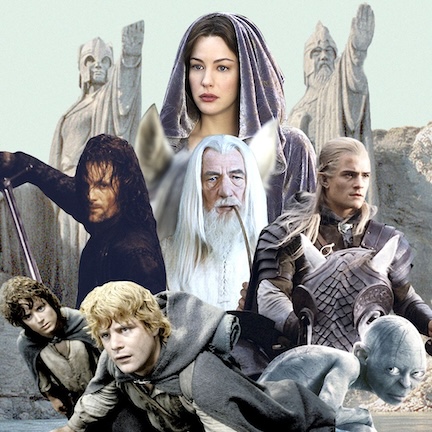
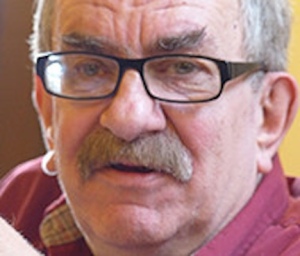















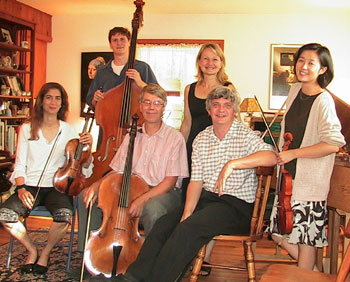

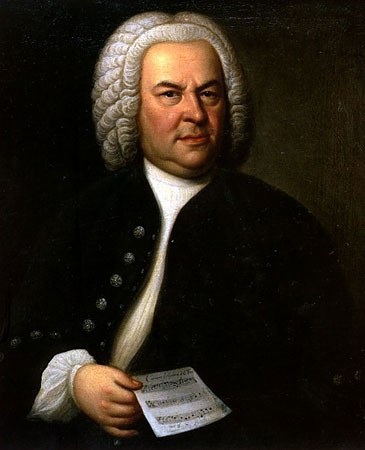
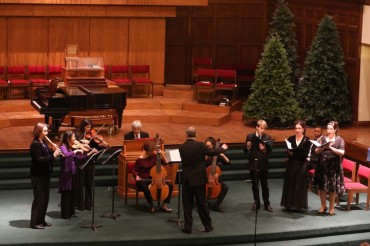










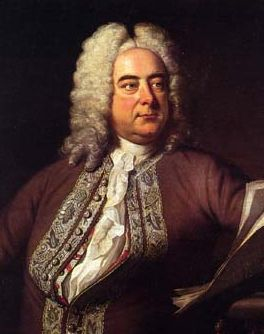

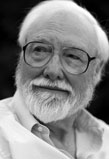




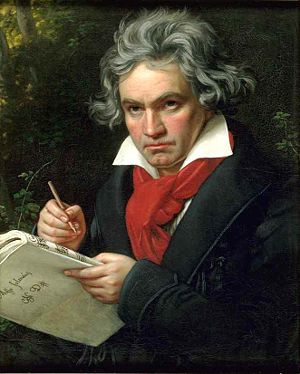


Classical music: A veteran reviewer bids farewell with a rave review of this summer’s last concert by the Willy Street Chamber Players and UW-Madison pianist Christopher Taylor
18 Comments
IF YOU LIKE A CERTAIN BLOG POST, PLEASE SPREAD THE WORD. FORWARD A LINK TO IT OR, SHARE IT or TAG IT (not just “Like” it) ON FACEBOOK. Performers can use the extra exposure to draw potential audience members to an event. And you might even attract new readers and subscribers to the blog.
By Jacob Stockinger
Here is a very special posting, the final review that will be written by frequent guest critic and writer for this blog, John W. Barker.
Barker (below), who is dealing with medical issues, is an emeritus professor of Medieval history at the University of Wisconsin-Madison. He also is a well-known classical music critic who wrote for The Capital Times, Isthmus and the American Record Guide, and who, until two weeks ago, hosted an early music show once a month on a Sunday morning on WORT-FM 89.9. For years, he served on the Board of Advisors for the Madison Early Music Festival and frequently gave pre-concert lectures in Madison.
Please use the comment section to join The Ear in thanking Barker for his many years of public service and wishing him well.
By John W. Barker
I had to miss the first concert this summer by the Willy Street Chamber Players (below) on July 12; and the next one, on July 19, was cancelled because of power failures. But the final one, last Friday night, was well worth waiting for — one of the really memorable events of the year, I think.
The program, performed at the usual near East Side venue of the Immanuel Lutheran Church, 1021 Spaight Street, began with some short items.
First, there was a set of Three Nocturnes (1924) for piano trio — violin, cello and piano — by Ernest Bloch. They contain elements of the Hebraic sound that Bloch cultivated but also had their own individualities, the first two contemplative and the third marked “tempestuoso.” Interesting was Bloch’s alternating uses of muting the strings.
After this came an example of the short pieces for string quartet by the contemporary composer Jessie Montgomery, her “Voodoo Dolls” (2008). Much is packed into this five-minute piece. A few lyrical touches aside, it sounded like a hoedown gone crazy, full of quite novel sounds, including rhythmic thumping on the wood of the instruments.
All that was a curtain-raiser to the big event of the program: the Piano Quintet No. 2 in A major, Op. 81, by Antonin Dvorak. This 40-minute work is one of the composer’s best-known chamber music compositions, and one of the standouts in the whole chamber music literature.
The very opening notes of the first movement bring a flood of warm well-being. (After hearing just that, I commented, “I haven’t felt such happiness in months.”)
The fecundity and richness of invention pervaded the entire work. For me, its high point is the second movement, in which Dvorak (below) used the Czech formula of the dumka, a kind of folk music lament that is paced slow-fast-slow-fast. (You can hear the Dumka movement, played by the Jerusalem Quartet and pianist Stefan Vladar, in the YouTube video below.)
Dvorak liked to play viola in chamber music, and so he always wrote some good things for himself. The sublime passages for viola in this movement were played with such transcendent beauty by Rachael Hauser (below) – who is leaving Madison for New York City — that I felt I was hearing the composer’s voice directly. Put simply, this was one of the greatest examples of chamber-music performance that I have ever heard.
All of the players, many of whom play in the Madison Symphony Orchestra, of course matched remarkable skill with humane vitality and vibrancy.
And a measure of the Willys’ standards was the fact that they were able to draw as a partner no less than that magnificent UW-Madison music school pianist, Christopher Taylor (below), who also performed the same Dvorak Piano Quintet in the 1993 Van Cliburn International Piano Competition, where he won a bronze medal. Much of his excellence here was demonstrated by the fact that he did not play the star, but joined with the Willys in perfect collegial integration.
This ends the Willy Street group’s fifth summer season. As a symbol of vibrancy and fresh spirit, they are among the most important of Madison’s classical music world today. They have drawn steadily growing audiences, and the house was truly packed for this concert. We can only hope that they will continue to brighten that world in the years ahead.
I am now ending my time as a music critic. I can think of no more satisfying a final review to write than of the Willy Street Chamber Players.
Share this:
Tags: #AmericanRecordGuide, #AntoninDvorak, #AudienceMembers, #BlogPost, #BlogPosting, #BlogReview, #BronzeMedal, #ChamberMusic, #ChristianChurch, #ChristopherTaylor, #ContemporaryComposer, #ContemporaryMusic, #Curtain-Raiser, #CzechMusic, #EastSide, #EmeritusProfessor, #ErnestBloch, #FacebookPost, #FacebookPosting, #FolkMusic, #HebraicMusic, #HighPoint, #ImmanuelLutheranChurch, #InstrumentalMusic, #IsthmusNewspaper, #JacobStockinger, #JerusalemQuartet, #JessieMontgomery, #JohnW.Barker, #LivingComposer, #LyricalMusic, #MadisonEarlyMusicFestival, #MadisonSymphonyOrchestra, #MeadWitterSchoolofMusic, #MedievalHistory, #ModernMusic, #MusicCritic, #MusicReview, #MusicSchool, #NewYorkCity, #PianoQuintet, #PianoTrio, #PowerFailure, #PublicService, #RachelHauser, #RadioHost, #RadioShow, #RadioStation, #StefanVladar, #StringQuartet, #SundayMorning, #TheCapitalTimes, #TheEar, #TheWillys, #UniversityofWisconsin-Madison, #VanCliburn, #VanCliburnInternationalPianoCompetition, #VoodooDolls, #WillyStreetChamberPlayers, #WORT-FM89.9, #YouTubevideo, advisor, ahead, alternating, American Record Guide, Antonín Dvořák, Arts, audience, beauty, best-known, bid, blog, board, brighten, bronze, bronze medal, bronze medalist, cancel, cellist, Cello, Chamber music, Christian, Christopher Taylor, church, Classical music, classicalmusic, collegial, comment, composer, Concert, contemplative, contemporary, crazy, cultivate, Czech, dance, demonstrate, directly, doll, dumka, Early music, earlymusic, east side, emeritus professor, end, Ernest Bloch, event, example, excellence, Facebook, fact, farewell, fecundity, feel, felt, final, flood, folk, folk dance, Folk music, formula, forward, frequent, fresh, great, group, growing, guest, happiness, hearing, Hebraic, high point, History, hoedown, House, humane, Immanuel Lutheran Church, important, individualities, instrument, instrumental music, integration, interesting, invention, items, Jacob Stockinger, Jerusalem, Jerusalem Quartet, Jessie Montgomery, John W. Barker, known, lament, lecture, like, literature, living, Living composer, lyrical, Madison, Madison Early Music Festival, Madison Symphony Orchestra, match, Mead Witter School of Music, measure, medal, medical issues, Medieval, memorable, modern, months, morning, movement, Music, music school, muting, New York City, Newspaper, nocturne, novel, packed, partner, passage, perfect, performer, pervade, Pianist, Piano, Piano Quintet, Piano Trio, pieces, players, post, posting, power, power failure, public service, quintet, Rachel Hauser, Radio, radio show, radio station, rave, reader, recording, remarkable, review, reviewer, rhythmic, rich, richness, satisfying, service, set, share, short, skill, Sound, special, spirit, spread, standards, standout, star, Stefan Vladar, String quartet, strings, sublime, subscriber, summer, Sunday, Sunday morning, symbol, tag, thank, The Capital Times, The Ear, The Willys, three, thump, thumping, time, touch, transcendent, United States, University of Wisconsin-Madison School of Music, University of Wisconsin–Madison, use, UW-Madison, Van Cliburn, Van Cliburn International Piano Competition, venue, Veteran, vibrancy, Viola, Violin, violinist, violist, vitality, voice, Voodoo, Voodoo Dolls, warm, well-being, Willy Street Chamber Players, Wisconsin, Wiscosnin, wood, work, world, WORT-FM 89.9, worth, Writer, year, YouTube